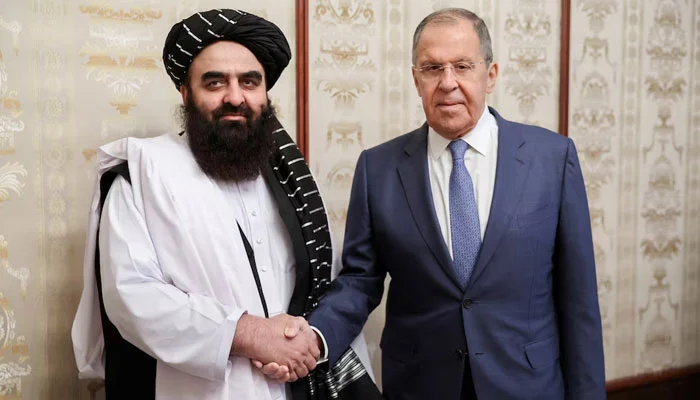In a historic and controversial decision, Russia officially recognized the Taliban government in Afghanistan on Thursday, making it the first country to do so since the group seized power in August 2021 following the chaotic US-led withdrawal.
The move came after Moscow accepted the credentials of a new Afghan ambassador sent by the Taliban, a significant diplomatic step that could reshape regional alliances and spark new global debates on engagement with the Afghan regime.
Russia’s Foreign Ministry announced the decision in a formal statement, citing the need to strengthen cooperation in security, trade, and counter-terrorism efforts. “We believe that the act of official recognition of the government of the Islamic Emirate of Afghanistan will give impetus to the development of productive bilateral cooperation,” the statement read.
Taliban Welcomes ‘Courageous’ Recognition
The Taliban administration responded with optimism and gratitude. Afghanistan’s acting Foreign Minister, Amir Khan Muttaqi, praised Russia’s decision, calling it a “courageous step” that could set a precedent for other countries.
“We value this courageous step taken by Russia, and, God willing, it will serve as an example for others as well,” Muttaqi said in a statement shared via state media.
So far, no other country has officially recognized the Taliban government, though China, UAE, Pakistan, and Uzbekistan have appointed ambassadors to Kabul—widely seen as moves toward informal recognition.
The Taliban views Russia’s decision as a breakthrough in its efforts to end international isolation and revive Afghanistan’s devastated economy through trade and diplomacy.
Trade, Energy, and Terrorism Top the Agenda
Moscow highlighted energy, agriculture, infrastructure, and counter-narcotics cooperation as key areas for strengthening bilateral ties. Russia also confirmed that it sees “good prospects” in developing trade and economic relations, pointing to Afghanistan’s growing demand for oil, gas, and wheat, much of which it already sources from Russia.
Security, however, remains a shared concern. Russia faces growing threats from Islamist militants across Central and South Asia, particularly ISIS-K, the Afghan branch of the Islamic State. The group was blamed for the March 2024 attack in Moscow, which killed 149 people at a concert hall. The Taliban, on its part, claims it is working to eradicate ISIS-K within Afghanistan.
In April this year, Russia lifted its long-standing ban on the Taliban, which had been designated as a terrorist group since 2003. President Vladimir Putin said in 2023 that the Taliban is now considered an “ally in fighting terrorism,” signaling a significant shift in Moscow’s foreign policy.
Global Response and Human Rights Concerns
The West is expected to closely monitor Russia’s recognition, especially the United States, which still enforces sanctions on senior Taliban leaders and controls billions in frozen Afghan assets. Washington has long maintained that recognition of the Taliban hinges on improvements in human rights, especially women’s rights.
Western governments and rights groups continue to condemn the Taliban’s crackdown on women. Under the current regime, girls are barred from high schools and universities, and women require male guardians for travel and public engagement. The Taliban defends its policies as aligning with its strict interpretation of Islamic law.
Still, Moscow appears willing to overlook these issues in favor of strategic cooperation, a stance that could influence other nations wary of isolating Afghanistan entirely. With the geopolitical landscape shifting, Russia’s move may pave the way for a new era of realpolitik diplomacy.
Follow us on Instagram, YouTube, Facebook, X and TikTok for latest updates
